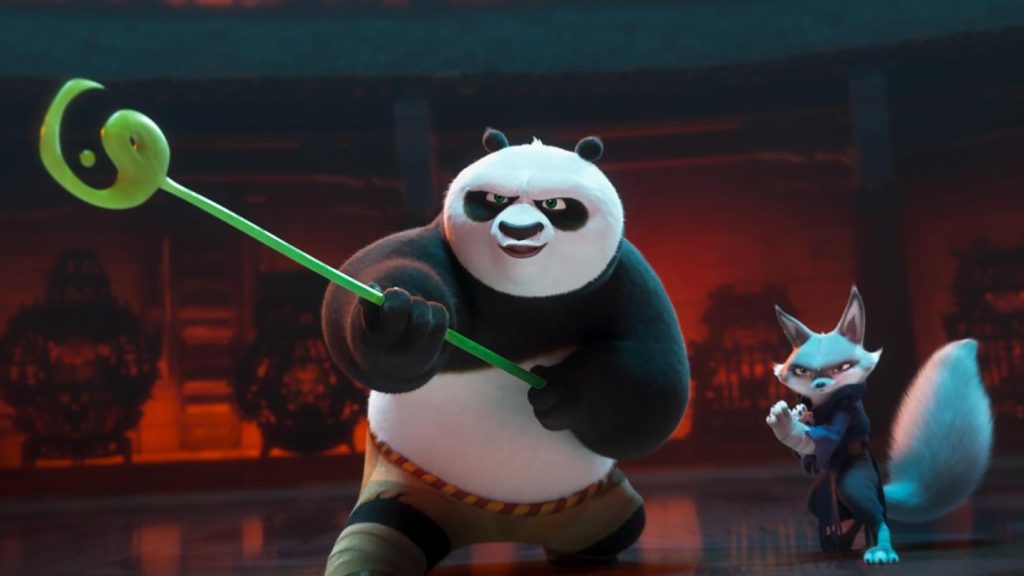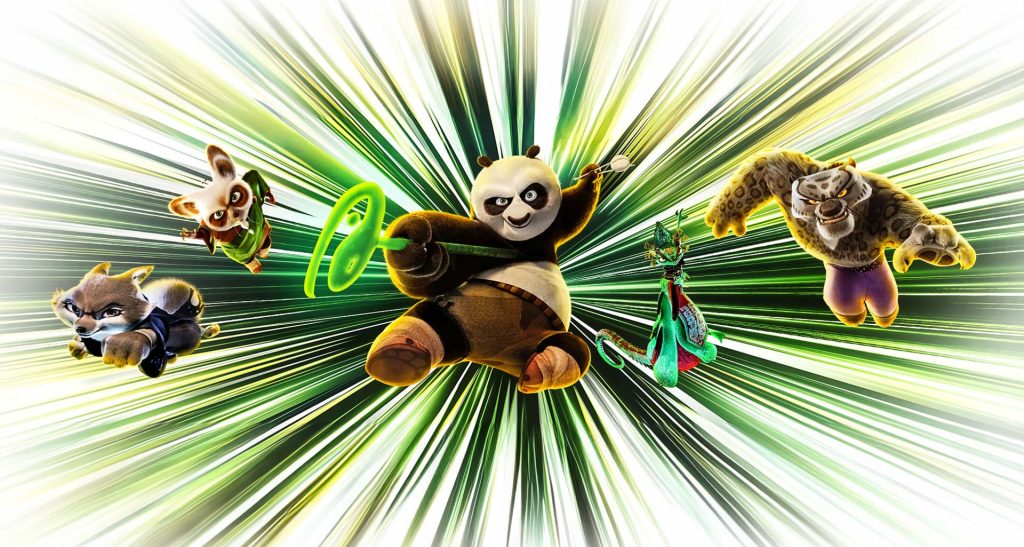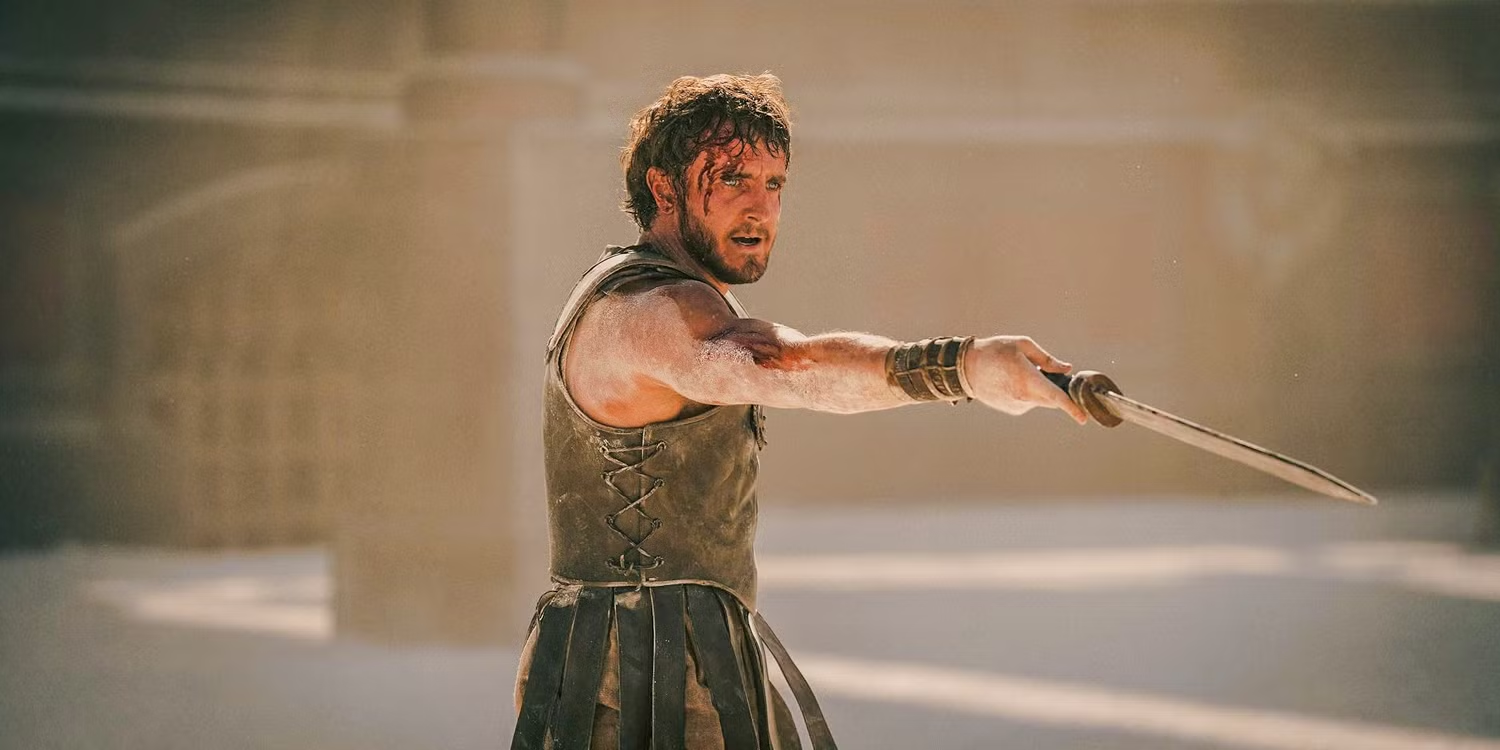Movie Review: Kung Fu Panda 4
Kung Fu Panda 4 lands in the OK-fairly good range, i.e., OK-fairly good enough to entice a few million families to the movies this month. The movie world needs babysitters with easy access to concession stands, and the Kung Fu Panda sequel presents itself as the current choice.
The question lingers, though: What did the 2008 Kung Fu Panda achieve that Panda 4 manages only here and there and now and then?

The first movie in any animated franchise has the theoretical edge, of course, in presenting the world with new characters and new everything. The initial Kung Fu Panda banked on plenty of martial arts action, but it took some time setting up the specific comic improbability of a panda such as Po, voiced by Jack Black, ascending to his destiny as the Dragon Warrior, protector of all that is good in his corner of ancient China. The film mixed genuine comic invention with clever variants on live-action martial arts movies a la Bruce Lee and Jackie Chan and so many others.
Eight years have flown, inched along or both, depending on your pandemic experience, since Kung Fu Panda 3. In Panda 4, screenwriters Jonathan Aibel and Glenn Berger return to working with co-directors Mike Mitchell (Shrek 4, Alvin and the Chipmunks 3) and Stephanie Stine. Stine makes her feature directorial debut here. Her experience as art director includes Raya and the Last Dragon and a How to Train Your Dragon sequel, gratifying visual accomplishments in both.
It always happens in franchise sequels, be they Iron Man or Panda: At some point, the dangers of a celebrity’s ego become a major plot point. In Panda 4, Po is enjoying fame, relative fortune and unlimited dumplings at this stage of his Dragon Warrior tenure. Straight off, mentor Shifu (Dustin Hoffman) relays the news that Po must now appoint the next Dragon Warrior so Po can transition into a quieter role he does not want: Steward and protector of the Valley of Peace, armed with the Staff of Wisdom.
The staff has the power to crack open the spirit realm, wherein dwell the late, great kung fu masters, including the fearsome snow leopard Tai Lung (Ian McShane). The new film’s adversary, The Chameleon (Viola Davis), has risen to the top of the underworld, extorting a piece of almost everything, like a female lizard Capone. She’s a mob boss of supreme deception, changing her appearance at will. Her evil ambitions include snagging the Staff of Wisdom for her own morally unwise reasons.
This plays out as a string of perpetual near-death scenarios for Po and his frenemy of a new ally, the streetwise fox Zhen (Awkwafina). The movie rarely shuts up or calms down for more than five seconds, and while the first Panda sequels were getting that way, the relative rhythmic variety and verbal spice of the original feels pretty far gone now.
Many prefer their animated babysitters this way, probably — rarely a pause or a downshift. I did laugh four or five times, once for each credited writer, including the “additional material” writers: Po’s meditation mantra “inner peace” gradually changing to “dinner, please” sounds just so coming from Jack Black’s mouth, for example. Also, there’s a delightful bull-in-a-china-shop sight gag, executed with a wry delicacy missing from most of the rest of the movie.

Maybe the quality slippage comes down to its production budget; this one costs roughly half of what the other three Pandas cost. But maybe not. Maybe the pandemic has played tricks on screenwriters’ heads regarding what they think audiences want and need and how to finesse it. Panda 4 feels more akin to one of the Ice Age movies, laden with occasionally funny but constantly nattering snark and meanness so that you don’t really buy the sincere bits. Black, Awkwafina, and Hoffman do their jobs, but the jokes have a way of arriving like jokes and sounding like jokes, but not quite being jokes. This is an action movie, foremost, which is fine.
Or rather, OK-fairly good.
6/10
Boluwatife Adesina is a media writer and the helmer of the Downtown Review page. He’s probably in a cinema near you.






